“I have witnessed sacrifice and rebellion by the daily watch of the torn tights my mother would wear daily… the threads engorging more and more at every attempt of repair form the veins I embody today and the networks of resistance I create”
My artistic work traverses the boundaries of performance rituals, acts of care, somatic practices, writing, image-making and sculptural installation. In all its forms it sees the presence of my body in movement, in its vulnerability, physically challenged & in an embodied exploration of personal and political themes. I use somatic movement as research’s method; the body and its material, scores and losses for personal and collective discoveries. I use both autobiographical and collective histories to challenge the perception of the self under social constructions and cultural environments, and to redefine and deconstruct univocal notions of (the) ‘femminine’.
My work develops in research frameworks, these are long lasting and evolve over time together with their performative and visual outcomes. Every action will manifest and take different shapes depending on the time and development of where the research and personal exploration is at, and adapted to the physical context hosting me.
The use of tights symbolises my journey, unveiling deeper truths about my ancestral lineage and personal wounds, while also highlighting the unique narrative of each individual’s lives, with the stories they carry, and that people have shared with me over the years. Their ability to tear and transform affirms my existence as a queer, southern Italian immigrant, mother, from a lower-class background, living & advocating for change in the UK. I use 'tights' to reconnect and tell stories of women and people from a working-class and disadvantaged socio-political background, creating performances, installations and images at the intersection between sacred ritual and rebellion. They connect generations and borders, re-connect the capitalistic division between ‘Home’ and ‘Work’, production and re-production.
Selected works/ research frameworks:

Subverse/ive bodies
A critical examination of gendered practices and subordination.Month long residency and evolving exhibition at Hypha Studio Stratford, October 2024
Starting from my dissertation research (soon to be published as a book), that offers a unique reconciliation of the history of sexuality and the medicalisation of childbirth, the project opens to a collective exploration of these themes through artistic research and performance making. It creates a cross-cultural work for a pioneering transhistorical examination of the medicalisation of 'subversive' behaviours & binary patriarchal norms that keep on affecting contemporary artistic representation & lived experiences of relationships, sex & childbirth as its augmentation.
For a month, Hypha Studios in Stratford has become an open studio, research hub, a durational performative act, and a creative community space. By centering individual differences within a supportive collective, we have gathered a creative community committed to creating art, research & somatic methodology to help deconstruct gendered identities towards healing intergenerational trauma for women & individuals assigned female at birth.
Curated and held by Dyana Gravina, co-created with Leni Dothan and Kadie Salmon
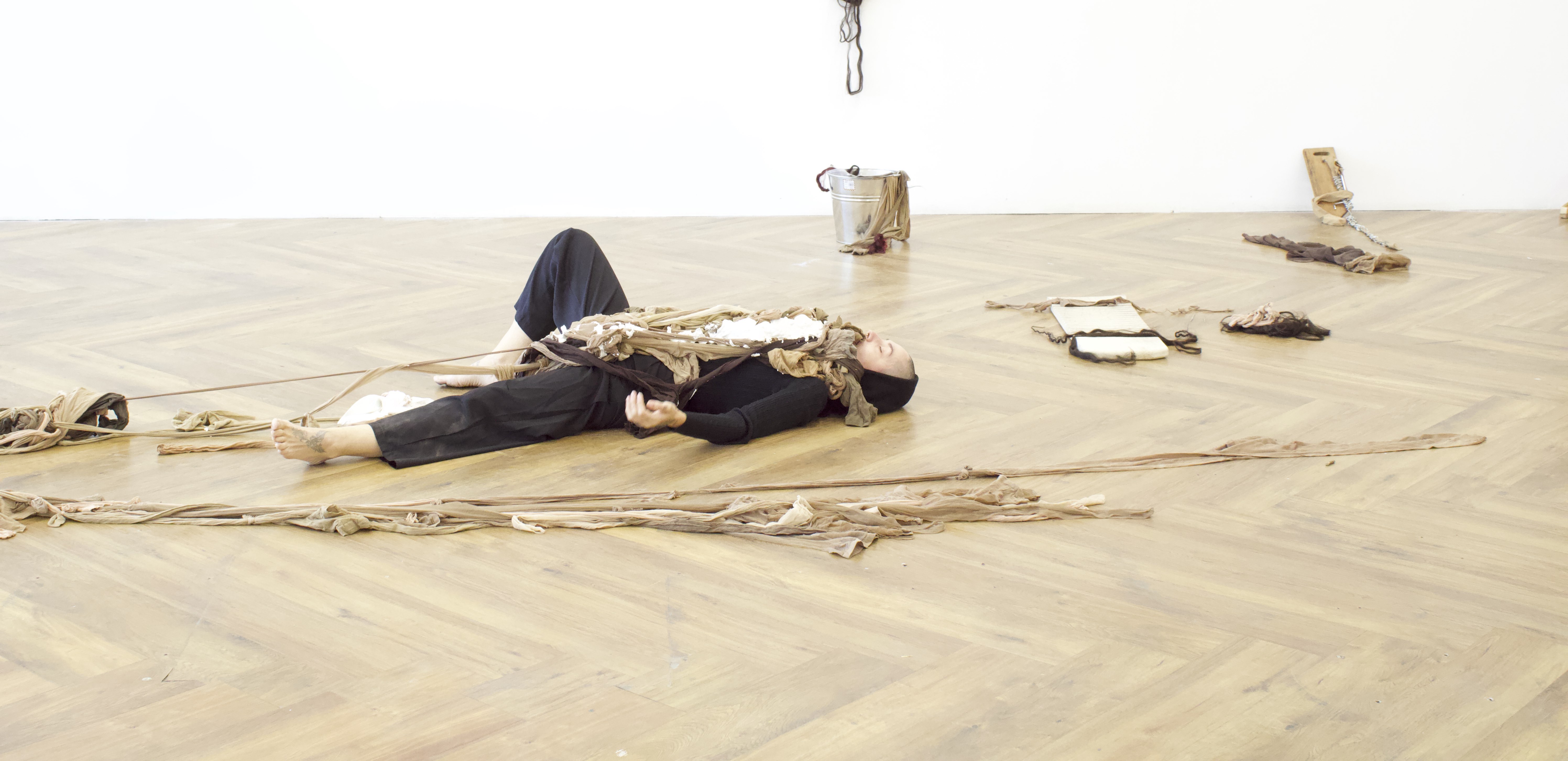




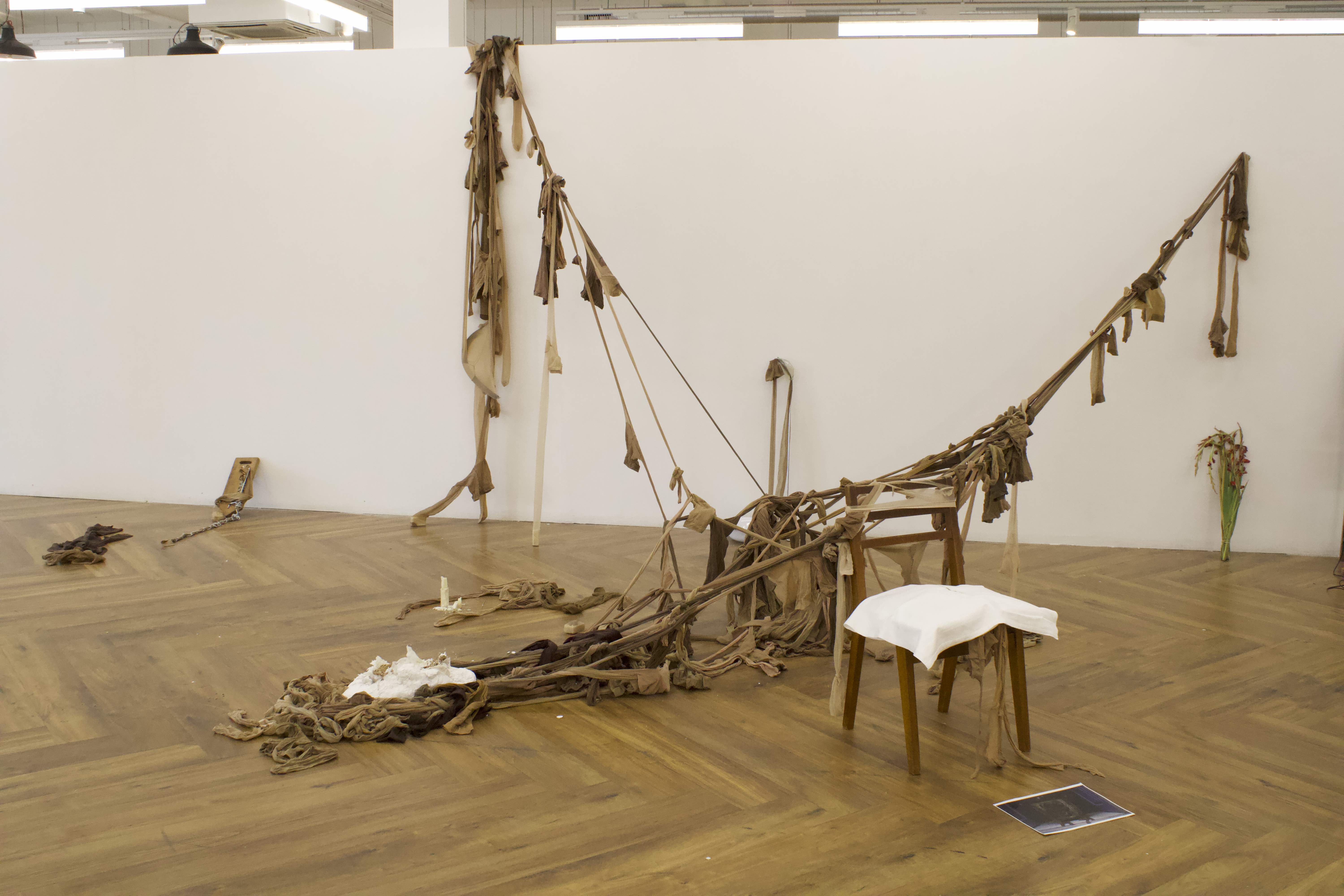

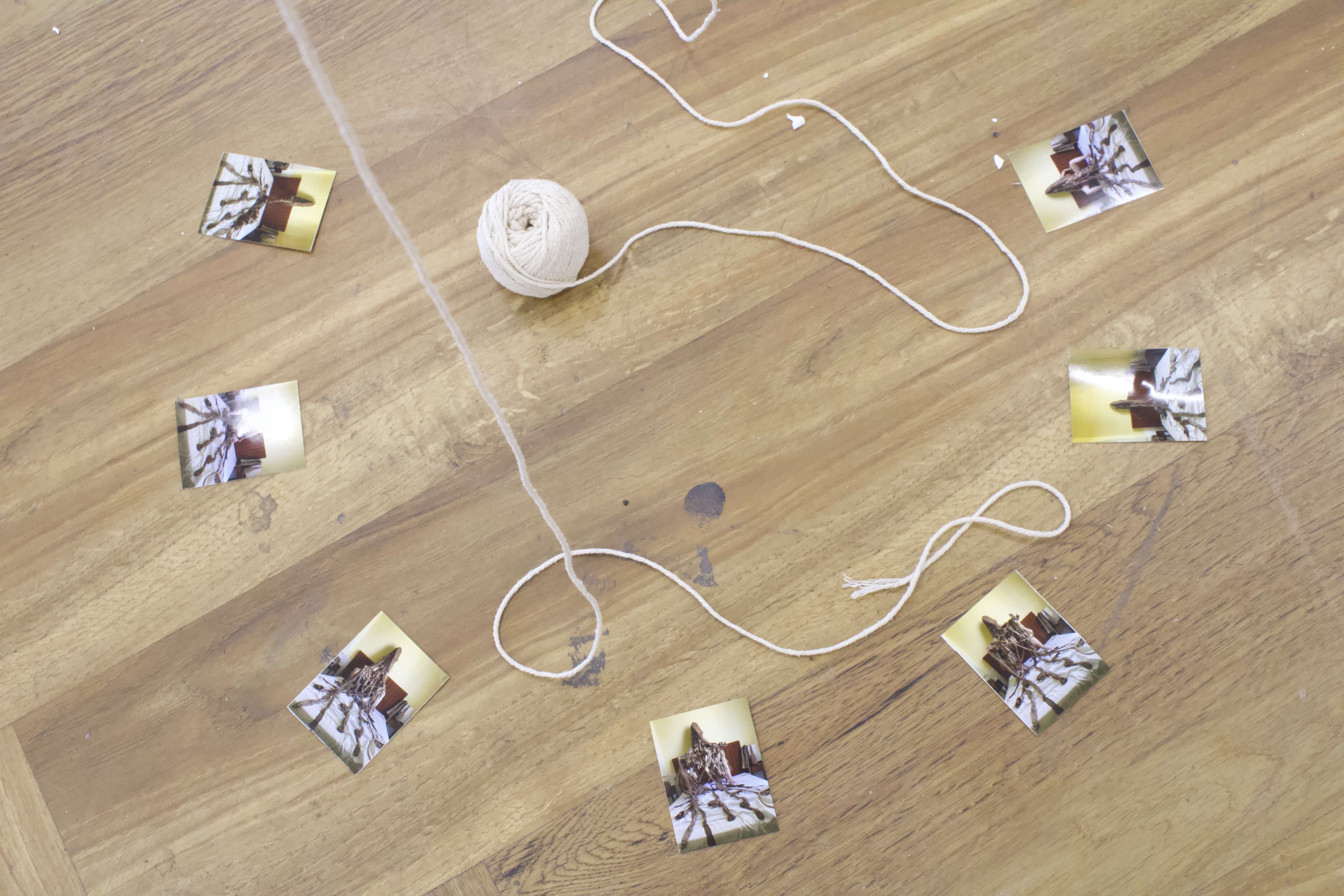
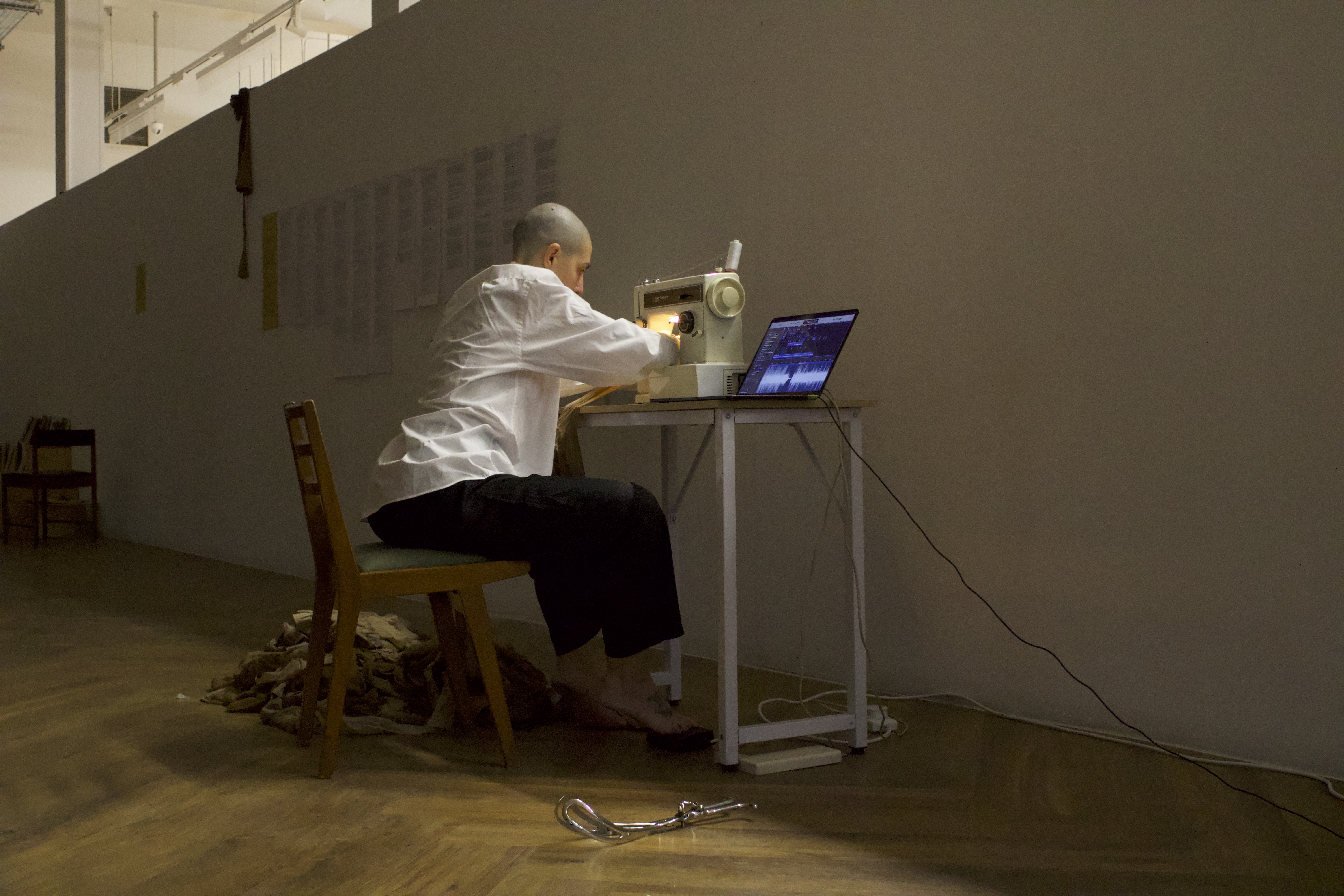


The Mothers of Social Hygiene #1, #2
Live Performance and Photography -DOMUS Artists Residency 2022- presented at Meno Parkas Gallery Lithuania 2022 - Unit Gallery London 2023.
" In the state of necessity there is no economy or ideology. Only in the action we find feminism, where there are no 'experts' words on feminism...where the crisis of represenation is not a crisis of creation and re-creation" - inspired by Françoise Collin
The performance draws on autobiographical material to tell the stories of women from the working-class and disadvantaged social backgrounds, shedding light on perspectives often absent from Western feminist discourses. The artist invokes the suffragette movement and strict notions of "womanhood" according to moral hygiene standards and literacy privileges. The action makes space for the realities of women's lived experiences through the illiterate, poor and "lost sisters" from rural areas of southern Italy.
The artist will reclaim their italian matrilineal traditions and different ideas on ‘emancipation’, yet embracing her presence as an immigrant activist in England.
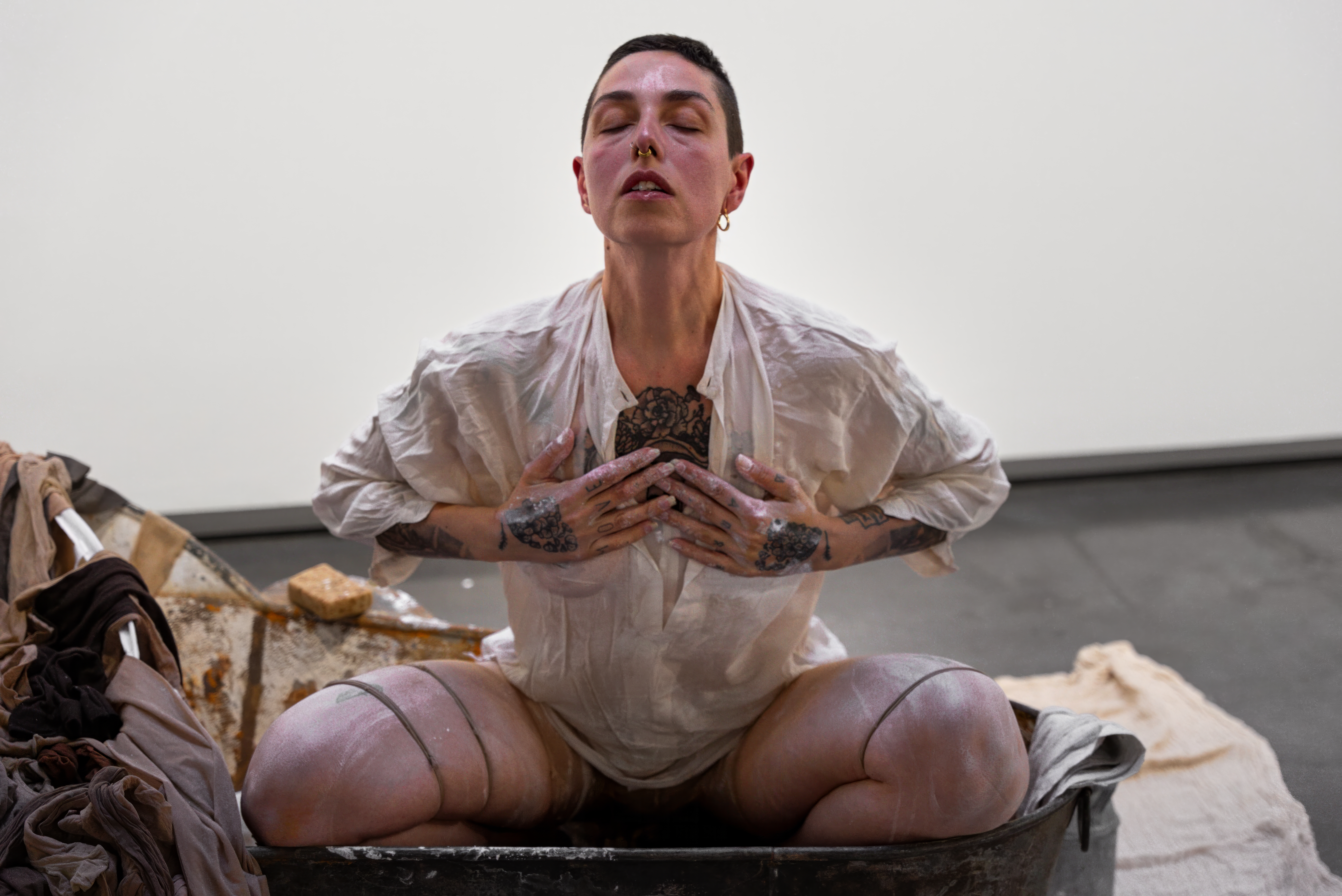
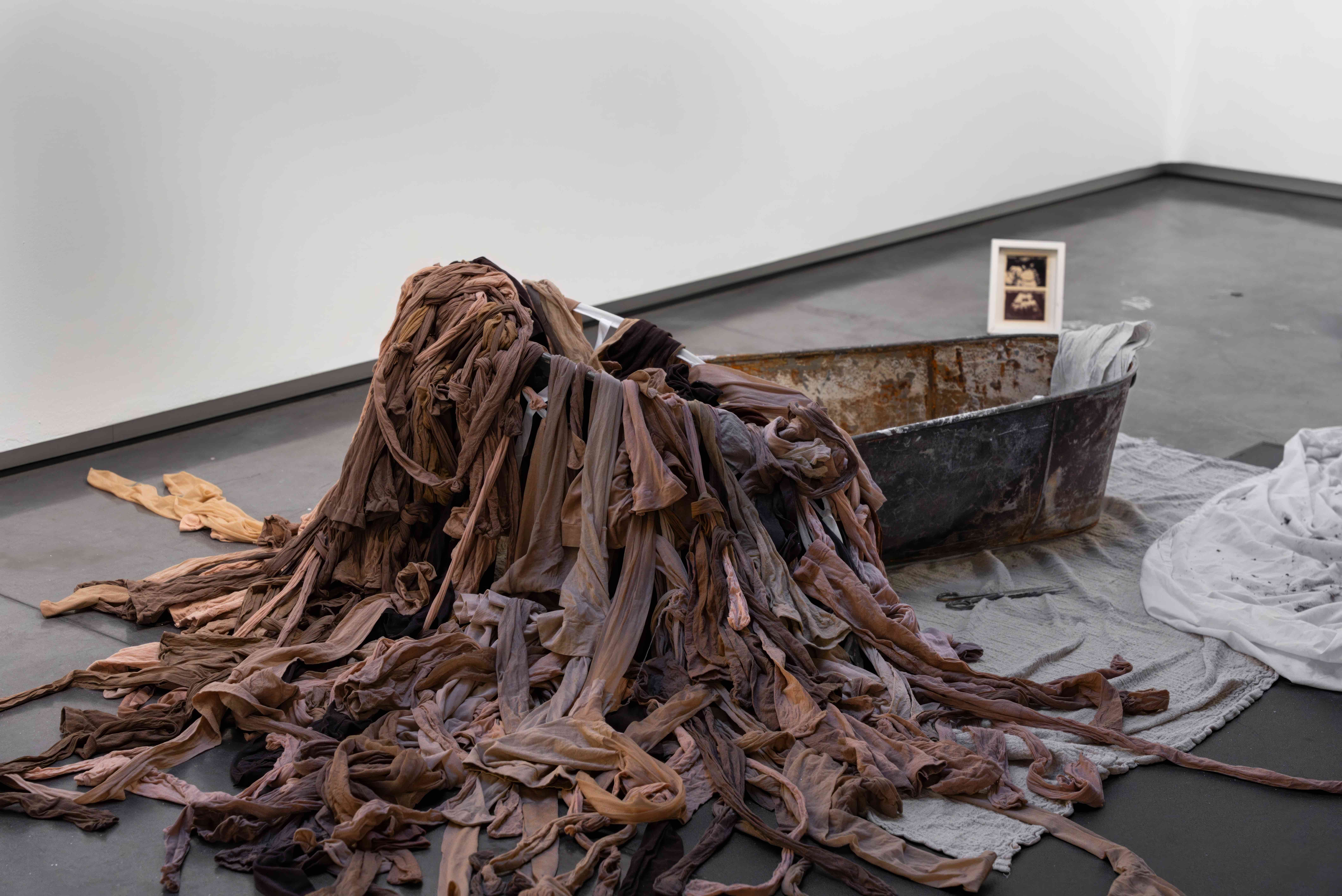
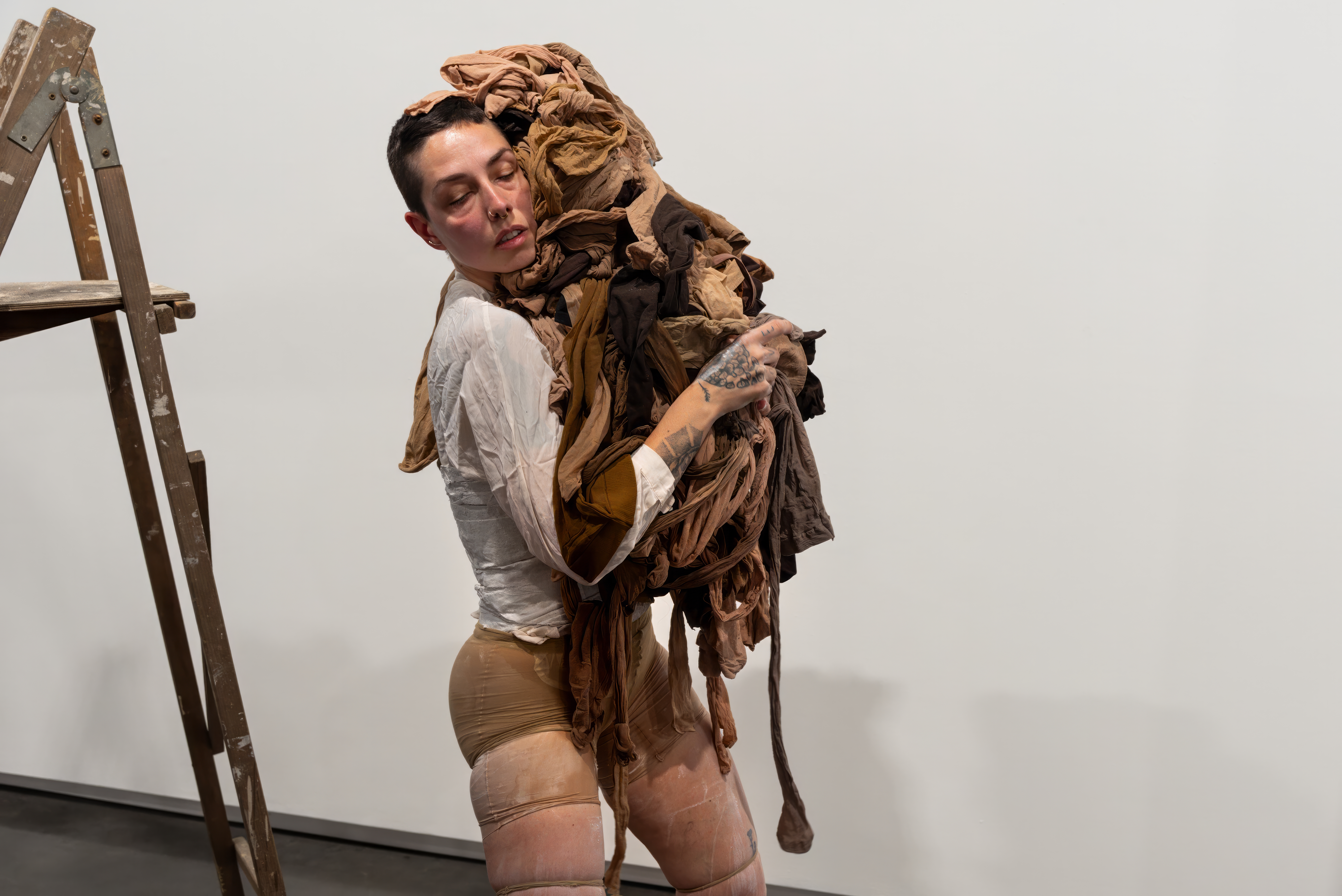
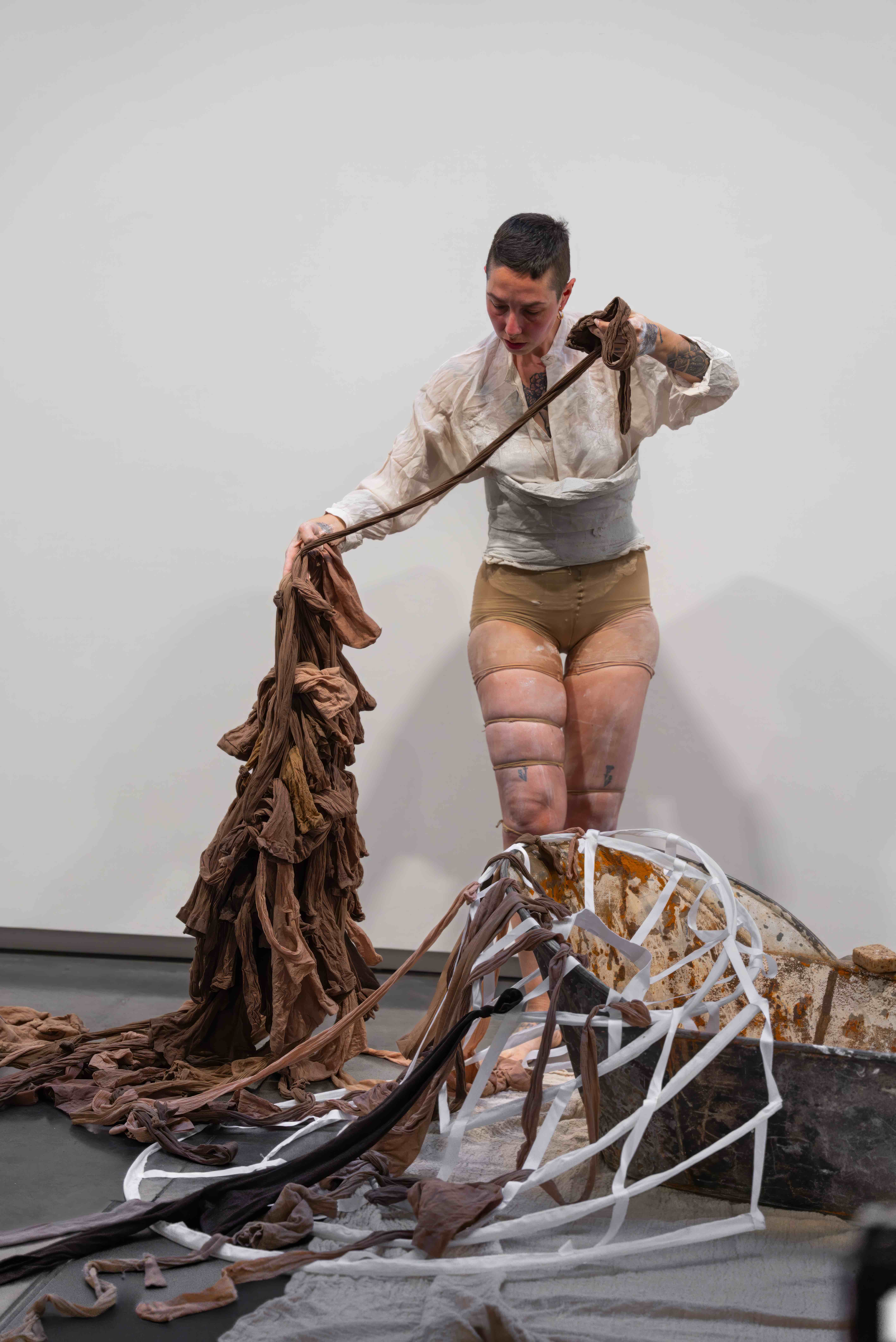
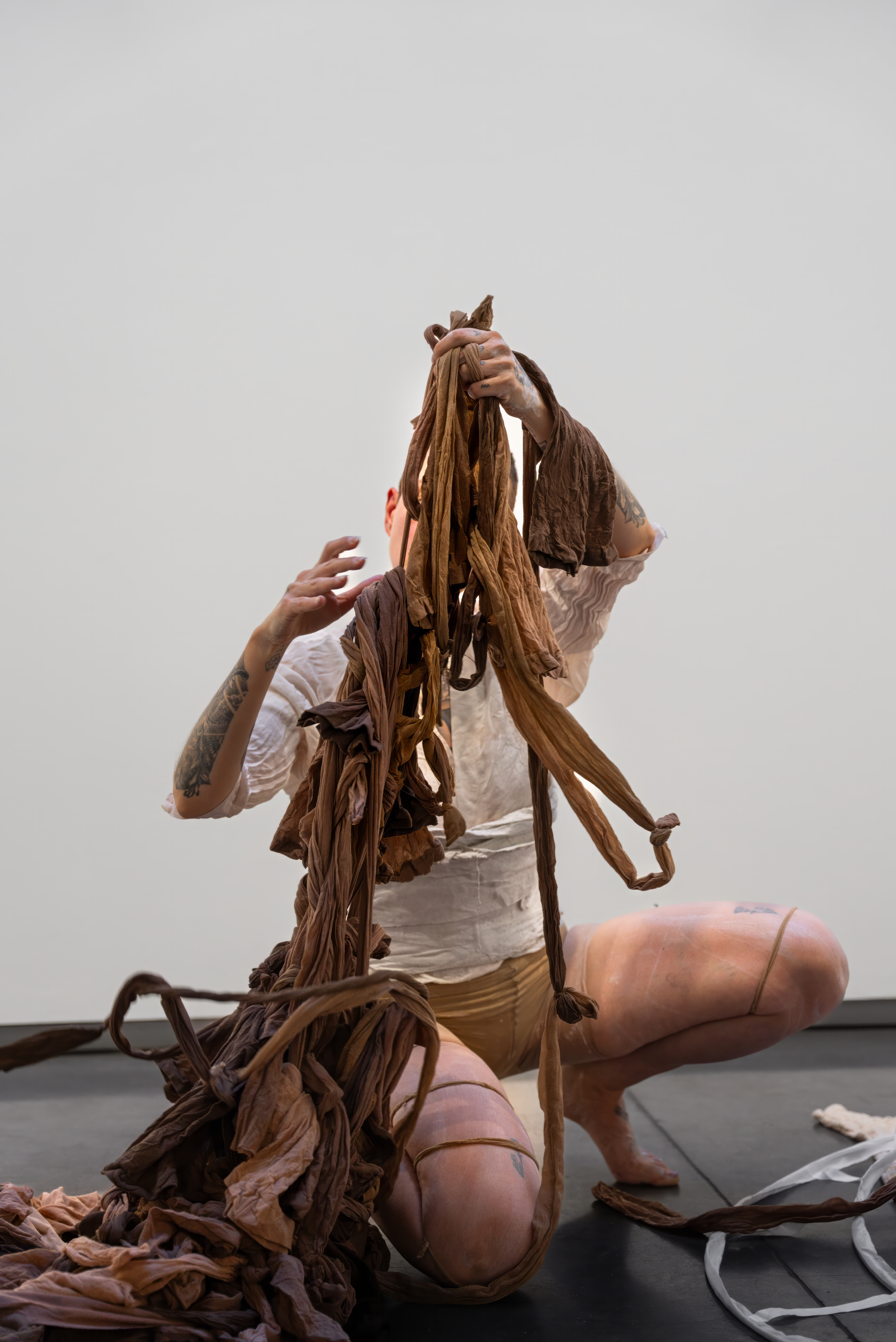
‘Birthing Subversive consciousness’
presented at Live Performance Venice International Perfomance Art Week, 2023 - MA Research in Gender Sexuality and Culture at Birkbeck University London."While psychoanalytic theory recognises that the sickness of the individual is ultimately sustained by the sickness of his civilisation, psychoanalytic therapy aims at curing the individual so he can continue to function as part of a sick civilisation without surrendering to it altogether" (Herbert Marcuse, 1966 in Jane Ussher, ‘ Women’s Madness, Misogyny or mental illness’, 1991)
Through an intersectional feminist lens Collective birth of subversive subjectivity, examines western religious iconography and the shift in visual culture from the palaeolithic to the contemporary representation of (the) feminine. The work reframes childbirth as a sexual experience and therefore subject of objectification, violence and oppression. To reframe ‘hysterical’ and ‘violent’ movements is important to open a more expansive literature around the female body and its expressions. The shaming of ‘bestial’ behaviours is key to explain the overall oppression that comes from binary patriarchal norms, yet the same quality allows the possibility to redefine what is ‘feminine’ and offer alternatives through the subjectivity of the embodied experience of sex, birth and life. The work integrates subversive expressions of masculinity and femininity to open possibilities of more humanised and liberated sex and birth acts, in the private and public realms.




The poison of a thousands movements
presented at Unit London 2022, Cinema del Reale 2022, Omnibus theatre 2023 with Laima Leyton.
The poison of a thousand movements is a somatic movement ritual, a video and sound installation and can also be offered as community workshop. It's inspired by the Southern Italian phenomenon of Tarantismo, a popular myth described as a condition caused by the bite of a spider which afflicted, mostly women, with perspiration and psychiatric symptoms similar to epilepsy. This work reclaims those dance and music rites for freedom, exposing a cross-pathing history of pain, cultural illnesses, and the religious appropriation of the wisdom that belonged to the body. The live performance wants to disrupt the connection with the 'men of the church' and re-shape codes of acceptance related to those 'violent', often pathologised behaviours, pleasures, and sexual expressions. Through a healing movement ritual, the work is a reclamation of that history under a non-binary - anti-patriarchal definition of 'female' and offers new visuals and narratives in contrast with the romanticised archetype attributed to the 'feminine' in spirituality.
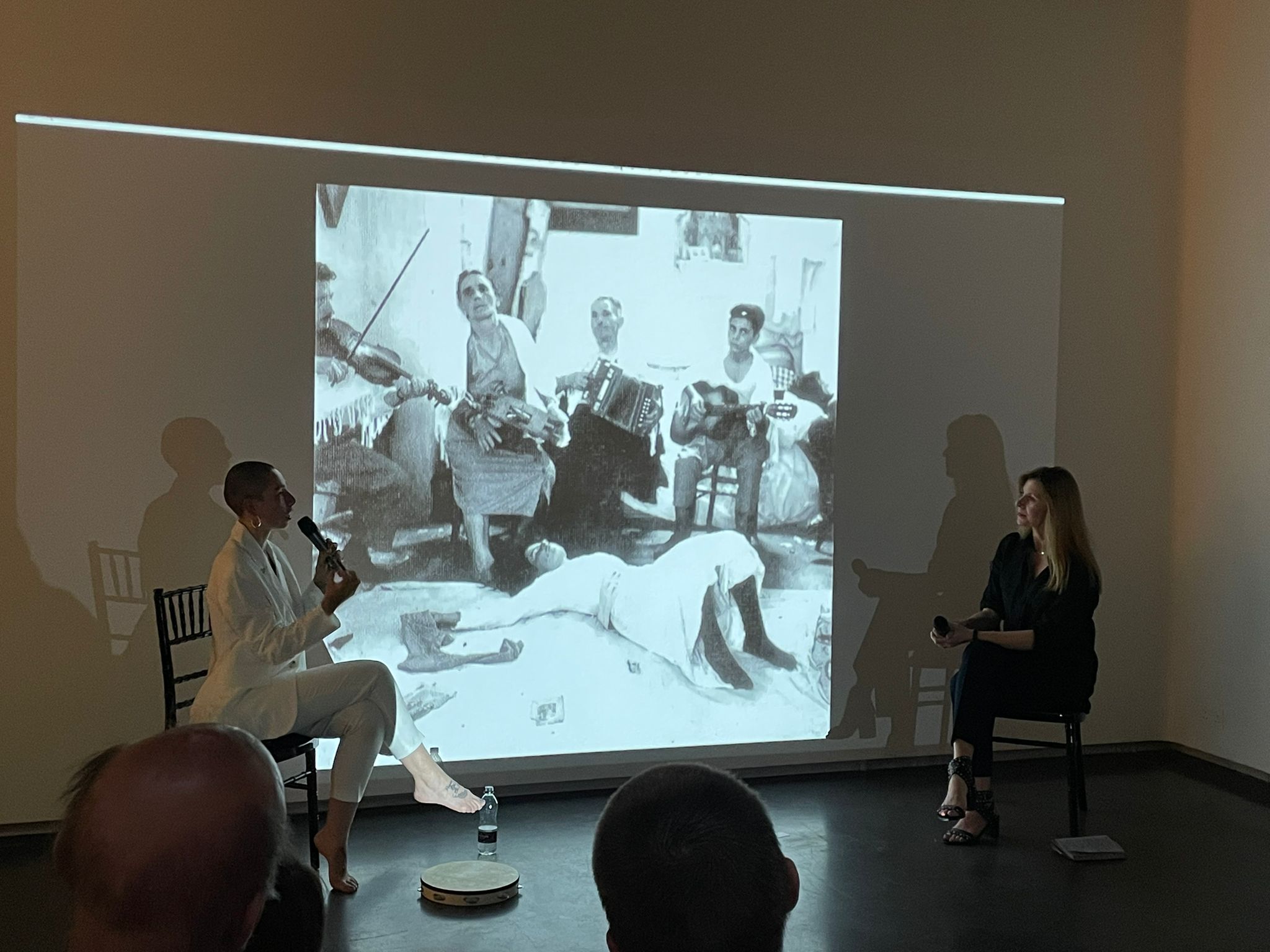

My mom’s torn tights
Ongoing visual research: Performance to camera, performative photographyI explore aesthetics in relation to my origins, class and gender roles, with an interest in the frictional relationship between sexuality and care work.
“I have experienced sacrifice by the daily watch of some torn tights my mother would wear daily, regardless of her appearance...”

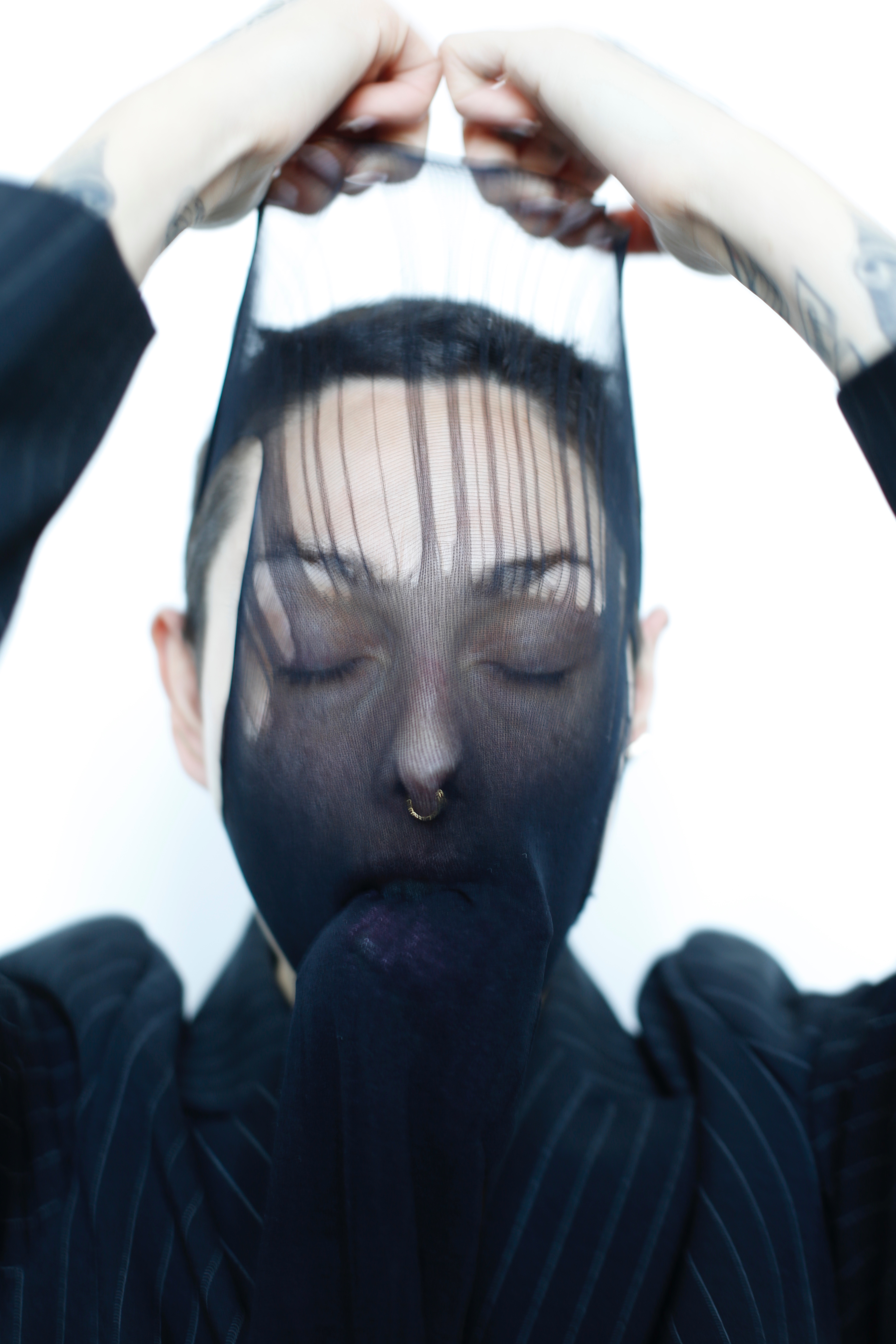
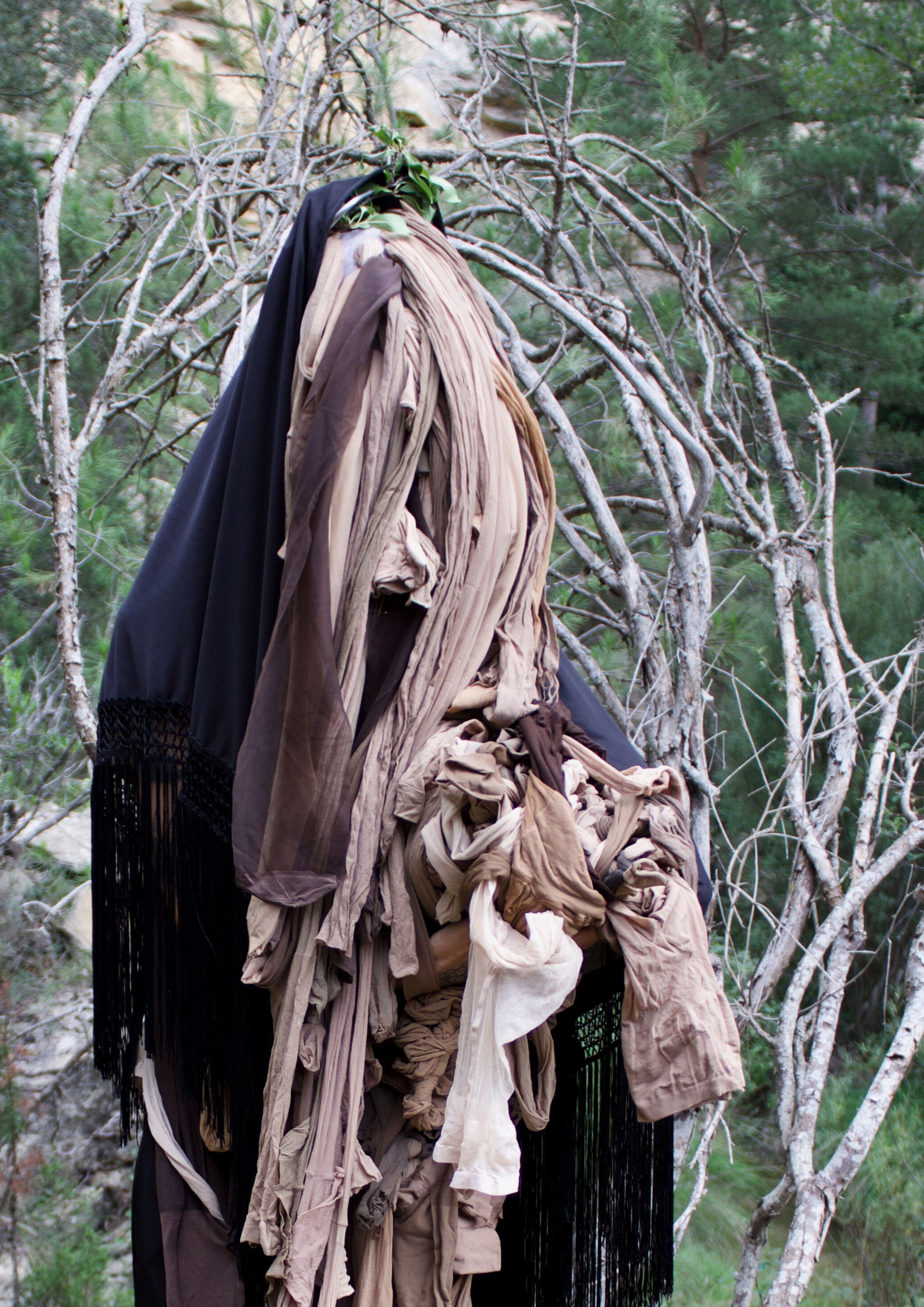
© Dyana Gravina 2024 all rights reserved